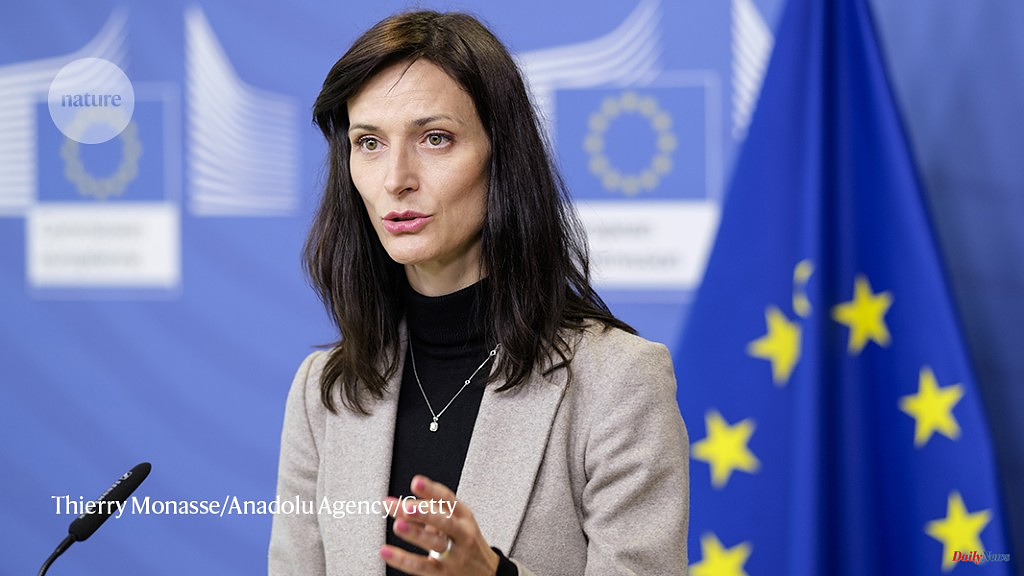Researchers were assured by the EU that Britain's withdrawal from the European Union was not a departure from Horizon Europe, the EU's research program. The terms of Britain's EU exit meant that the country would continue to contribute to the EUR95.5 billion (US$100.6 billion) fund. Researchers would still be eligible to receive grants, including prestigious European Research Council grants. They would also be able lead projects and take part in initiatives like the International Thermonuclear Experiment Station in France. Scientists exhaled relief. Although many were opposed to Brexit, access meant that existing research partnerships could continue and new ones could be formed.
However, a lot has happened since then. Researchers are stuck in the middle of a rift between UK and EU policymakers. People who were awarded ERC or other grants will likely lose them. The main reason is that the British government has decided to break certain terms of the EU separation agreement it carefully negotiated.
The UK government introduced draft legislation to its parliament, which is designed to amend trade arrangements between Northern Ireland (which forms part of the United Kingdom) as well as the independent Republic of Ireland (which makes up a member of EU). This unilaterally is being done, rather than using the official dispute resolution system. The EU has launched legal action against the United Kingdom in response to this action for violating international law.
All of this is taking place, but the EU has stopped research cooperation. UK recipients of EU grants were told that they would need to relocate to EU institutions if they wish to have guaranteed access to the funds. Some are reluctantly ready to move. Any future UK access to Horizon Europe will be made more difficult by the EU's legal action. It will likely take many years for the legal case to resolve, and Horizon Europe is limited in time: it expires in 2027.
Both the UK and EU have been fighting a loud and prominent campaign called "Stick to Science", which urges politicians to keep science out of politics. A science relationship that has been in place for over five decades is likely to end, barring any last-minute changes of heart. It could prove to be the most devastating blow to European science cooperation. Researchers from mainland Europe have contributed a lot to UK science over the years.
It is not surprising that relations between the UK government, the nation's scientists and researchers are at their lowest point in recent history. Researchers are frustrated by the uncertainty and lack of communication regarding what is next. They also have concerns about the inconsistent funding policies.
George Freeman, the UK's science minister, is an entrepreneur and intellectual in biotechnology. He is creating a global backup fund for UK researchers, which he calls Plan B. Freeman informed a parliamentary inquiry last week that the government would publish a prospectus for the fund before members of Parliament begin their summer break on 21 Jul. The fund will offer international fellowships to UK researchers, as well as funding for high-risk and high-reward research similar to the one funded by the US Defense Advanced Research Projects Agency.
The problem for the minister is the UK Treasury, the department providing funding, must know which option to fund. There is a risk that funds allocated to Plan B and Horizon Europe won't be used if the country doesn't join them in time.
The government's abrupt decision to end one of Britain's most popular global funding programs, the Global Challenges Research Fund, and to not renew a second global fund called the Newton Fund, is another reason scientists have little faith in Britain's funding plans. It was announced in 2021. Projects that were already in operation suffered from the sudden cancellation of GCRF.
It is essential that the UK government consults some of its experts in research funding to design a new global fund. Organizations such as the Royal Society and the British Academy, who were responsible for managing the GCRF, and the Newton Fund, should be included in the consultation.
These funds were used to support partnerships between researchers from the United Kingdom with international counterparts. This included many in low and middle-income countries. They were particularly useful for projects that aimed at meeting the United Nations Sustainable Development Goals. These funds have transformed research at many universities in the UK and worldwide. The GCRF supported nearly 5,000 researchers in more than 800 projects across 120 countries by 2019. The new global fund could benefit greatly from an evaluation of these lessons.
Researchers around the globe need to be reminded by the story of the United Kingdom's science decoupling from Europe. International cooperation in science is not something that can be taken as a given. Researchers have come to expect leaders to understand that science and knowledge thrives on partnerships and international interchange -- and that research, knowledge, and scholarship should continue in the face of conflict or political tension. However, the science that has emerged from the UK's split with the EU shows that this is not always the case.
We urge researchers to intensify their efforts to strengthen and maintain collaborations as the world moves into a more uncertain period following the Russian invasion of Ukraine and the pandemic. It doesn't matter how small the action. Together, acts of solidarity can keep collaborations alive even if formal ties are not available, just like they did during conflict and tension.












